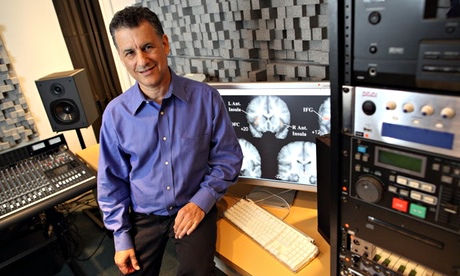
What inspired you to write The Organized Mind?
My first two books, This Is Your Brain on Music and The World in Six Songs, aimed to explain neuroscience to the general public. When they became surprise bestsellers, I realised that the public has a real thirst to better understand their brains. And we brain scientists have been sitting on a lot of information that hasn’t trickled down to the average reader. I’ve always been interested in peak performance, why some people do better in life than others. I wrote The Organized Mind to take some of these neuroscientific findings that apply to business, leadership and productivity, and relate them to the average person.
How do you quantify “information overload”?
We really are living in an age of information overload. Google estimates that there are 300 exabytes (300 followed by 18 zeros) of human-made information in the world today. Only four years ago there were just 30 exabytes. We’ve created more information in the past few years than in all of human history before us. On average, we take in five times as much information every day as we did in 1986 – the equivalent of 175 newspapers. YouTube uploads 6,000 hours of new video every hour. For every hour of YouTube videos you watch, you’re already 5,999 hours behind!
If multitasking is scrambling our brains, what is the solution to information overload and the attention problems that it causes?
We need to blinker ourselves, to better monitor our attentional focus. Enforced periods of no email or internet to allow us to sustain concentration have been shown to be tremendously helpful. And breaks – even a 15-minute break every two or three hours – make us more productive in the long run. Also, prioritising tasks is very important. So many of us find that while we’re working on one task, a nagging voice pops up in our heads saying we should be doing something else. If you explicitly prioritise your “to do” list, you know that whatever you’re working on now is the most important thing you should be doing.
How can afternoon naps help our brains to work more efficiently?
The brain has an attentional mode called the “mind wandering mode” that was only recently identified. This is when thoughts move seamlessly from one to another, often to unrelated thoughts, without you controlling where they go. This brain state acts as a neural reset button, allowing us to come back to our work with a refreshed perspective. Different people find they enter this mode in different ways: reading, a walk in nature, looking at art, meditating, and napping. A 15-minute nap can produce the equivalent of a 10-point boost in IQ.
What are “brain extenders” and how can they increase our ability to concentrate?
Brain extenders are anything that get information out of our heads and into the physical world: calendars, key hooks by the front door, note pads, “to do” lists. If you hear on the weather report that it’s going to rain tomorrow, rather than reminding yourself to bring your umbrella, set the umbrella by the front door – now the environment is reminding you to bring the umbrella. The point is that all these things compete for neural resources in your brain, cluttering your thoughts, making it more difficult to devote attention to what is at hand.
How can we educate our children to deal with information overload?
Although it is easier to find information these days, it is easier than ever before to find misinformation, pseudo-facts, unsupported and fringe opinions, and the like. Children should be taught at an early age what constitutes evidence, how to detect biases or distortions in newspaper accounts, and that there exist hierarchies of information sources. In the medical field, for example, a controlled experiment published in a peer-reviewed journal is a better source than a blog by the Ginseng Growers Association, promoting the health benefits of their own product.
Do you practise what you preach when it comes to organising your own mind?
Ha! Well there’s always room for improvement. But I’ve become much better about using my calendar for everything that is time-bound – not just appointments, but “to do” items that have a deadline attached to them, with little “run up” reminders such as “Start working on that report that’s due next Tuesday”. I take more breaks and I take a nap every day and I no longer feel guilty about those. I do the most important things first in the morning.
It might sound like I’m advocating a very rigid, structured schedule but I’m not. I’m just talking about simple things we all can do, such as prioritising. The people who do this find that they have more time for spontaneity and creativity in their lives, and more time to spend with loved ones, because the work portion of their day is more efficient.

